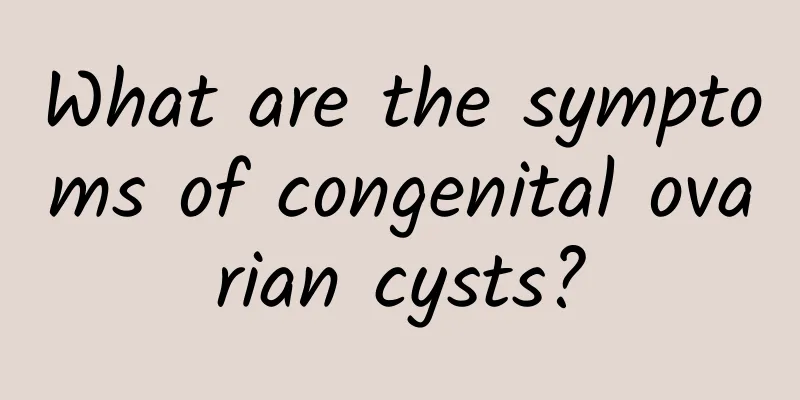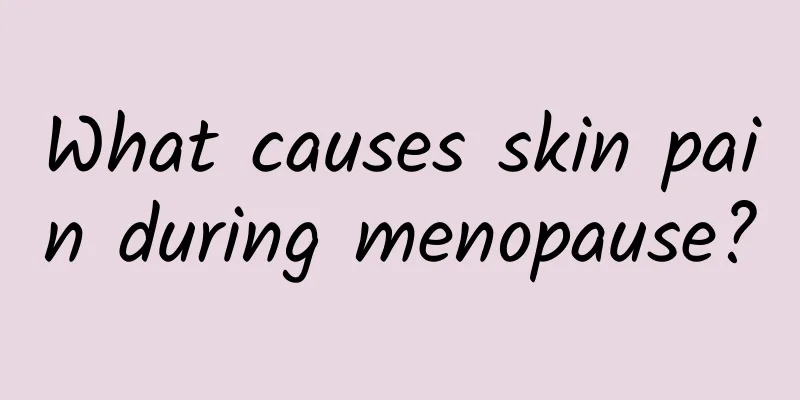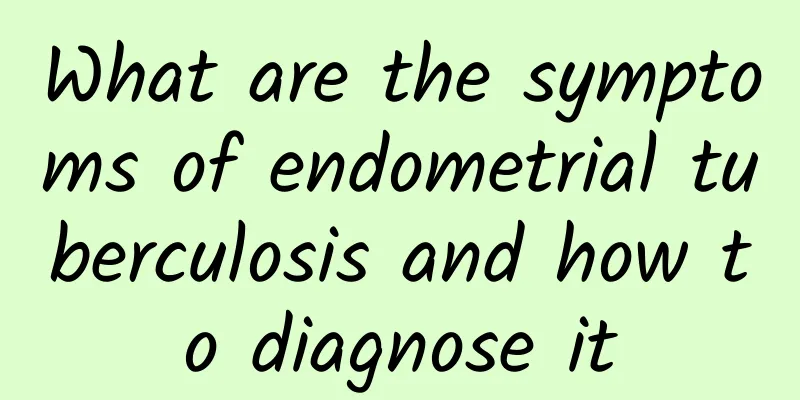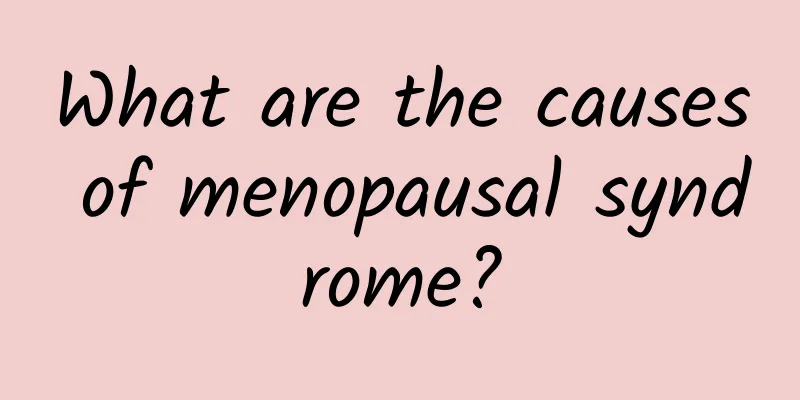What are the symptoms of congenital ovarian cysts?

|
The causes of ovarian cysts are mainly congenital ovarian diseases, central influences, chronic diseases, and early ovarian failure. So, what are the symptoms of congenital ovarian cysts? Clinically, ovarian cysts often present with lower abdominal pain, discomfort, increased vaginal discharge, yellow vaginal discharge, abnormal vaginal odor, irregular menstruation, and usually a firm, painless swelling in the lower abdomen. Sometimes sexual intercourse can be painful. When cysts affect hormone production, symptoms such as irregular vaginal bleeding or increased hair growth may occur. If the cyst is twisted, there will be severe abdominal pain, dyspnea, loss of appetite, nausea and fever. Larger cysts will cause pressure near the bladder, causing frequent urination and dysuria. Especially when these symptoms are more severe, bleeding is frequent and occur at the same time, women are more likely to have ovarian cysts, and the risk of malignant ovarian cancer is greater. Medicine classifies ovarian cysts as "癓瘕", believing that the disease is mostly caused by emotional damage, sexual overwork, or the invasion of the six external evils during menstruation and postpartum period, which leads to qi blockage, organ disharmony, and yin and yang imbalance. In treatment, a comprehensive and integrated analysis of the overall cause of the disease and dialectical treatment are required to truly resolve the disease. Ovarian cyst is a serious gynecological disease. Patients should be treated promptly. The following drugs can be used: Xiaojie'an Capsule: Tongselesailong, Bingnonggannongnei Nongjie, Hunbingnei, Bingban. Traditional Chinese Medicine: Activate blood circulation and remove blood stasis, soften and disperse nodules. Used for breast lumps caused by qi stagnation and blood stasis, breast lobular hyperplasia, ovarian cysts, and uterine fibroids with the above symptoms. Hongjin Xiaojie Capsule: Formerly known as Amonoqi Capsule and Xiaorupi Capsule. The prescription of this medicine is a secret recipe of Yunnan Yi people and is a national secret variety. Guizhi Fuling Capsule: It is a compound preparation made from five Chinese medicinal herbs: cinnamon twig, poria, peony bark, peach kernel, and peony root. It is clinically used for gynecological diseases. |
<<: Can Fenbid cure dysmenorrhea?
>>: What are the symptoms of pelvic inflammatory disease?
Recommend
The government and opposition parties have been in a 5-day and 4-night standoff over the US beef issue, but it has come to nothing
The current session of the Legislative Yuan was a...
What's wrong with burping and bloating during menstruation?
What’s wrong with hiccups and bloating during men...
Painful urination Abnormal vaginal discharge
The stinging sensation during urination accompani...
Cost of treating hyperprolactinemia with an old Chinese doctor
When it comes to the treatment of hyperprolactine...
Can patients with adenomyosis eat chicken?
Adenomyosis Do you eat chicken? 1. Chicken has hi...
What are the causes of cervical erosion?
There are many reasons for cervical erosion, and ...
How to treat recurrent vaginitis
How to treat recurrent vaginitis? The recurrence ...
Want to get the most out of your sugar-reduced diet? Japanese nutritionist recommends: minerals and B complex
Eat less carbohydrates such as white rice, bread,...
Here are some common early symptoms of ectopic pregnancy:
Ectopic pregnancy is a common disease in our dail...
Is cervical hypertrophy harmful?
Cervical hypertrophy may have a certain impact on...
What are the main treatments for vulvar leukoplakia?
What are the main treatments for vulvar leukoplak...
Understand the symptoms of cervical erosion
Cervical erosion is a common gynecological diseas...
What to do if you have cervical bartholinitis
The occurrence of Bartholin's glands will mak...
Will not paying attention to hygiene lead to adnexitis?
Adnexitis is a common disease in gynecology. Most...
Obesity caused by excess fat! 3 Teas with Warming Ingredients
"Doctor, why does my face look swollen, and ...









